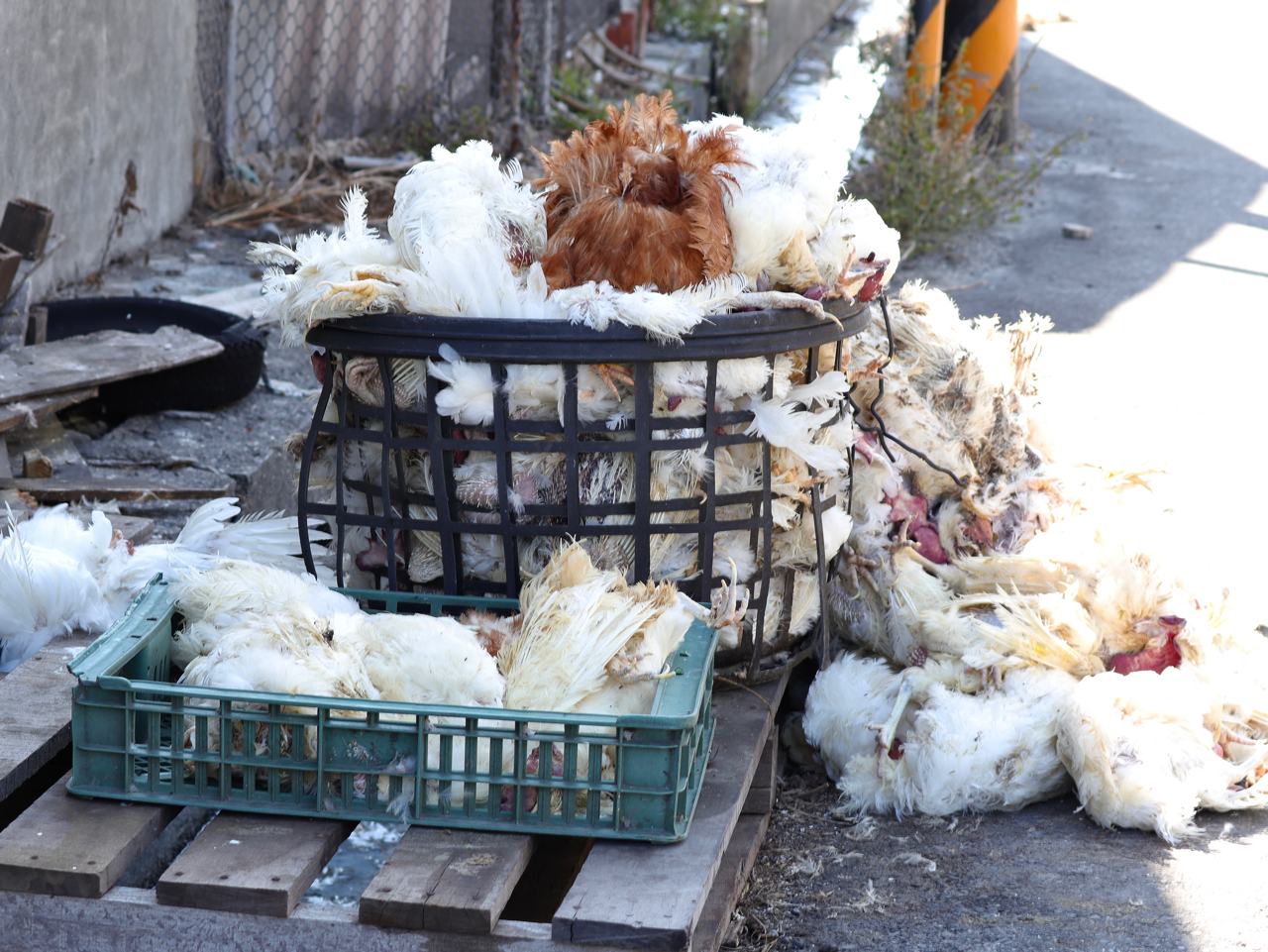H5N1 highly pathogenic avian influenza is raging all over the world, and Taiwan is not immune. As of today (4), 17 poultry houses have been infected. The Council of Agriculture announced that the epidemic is severe, and the chicken farms in the Yunzhang area have a red light. Coupled with the latent H5N2, and the recent cold snap, the situation of poultry and livestock is critical. The reporter went to Changhua and found that there were baskets full of dead chickens at the entrance of almost every chicken farm, and dead ducks appeared at the entrance of duck farms. 
Chicken farmers and veterinarians in the place of origin believe that the current prevention and control measures for bird flu include fences, notifications, and culling, which have been in place for a long time, but the results are quite limited, and vaccines should be developed in accordance with Mexico, Vietnam and other countries. However, the Council of Agriculture believes that vaccines will cause virus recombination and mutation. At least 10 virus recombination cases have been found in domestic chicken farms. Whether vaccination can effectively prevent the epidemic remains to be seen. The only thing that is certain is that the cold snaps take turns and bird flu is happening all over the world, adding more uncertainties to the domestic market that is already short of eggs .
Can the bird flu vaccine be played? Veterinarians and public health experts see it differently
The egg shortage has entered its second year. Veterinarian Yang believes that the renewal of the domestic chicken industry is imminent. The extreme weather in recent years is either too hot or too cold for chickens. Some chicken farmers have learned from the pain and changed to airtight water curtain houses. In addition to updating equipment, the country should also rethink bird flu countermeasures. Taiwan has carried out physical epidemic prevention such as fencing and culling compared to advanced countries such as the United States and Japan. However, based on the experience of the United States and Japan, these epidemic prevention effects are very limited and cannot stop the onset. The government should follow the practice of Mexico and Vietnam in avian flu vaccination. Although the vaccine cannot completely immunize the virus, it can at least effectively prevent the spread of the virus.
However, some scholars believe that vaccines are not the best policy. Zhao Daiyu, a professor at the Institute of Microbiology and Public Health at Chung Hsing University, analyzed that for the H5N2 virus, the virus has eight segments of genes. Judging from the monitoring situation, the virus has been localized. At least 10 recombinant viruses have been found in domestic chicken farms. It is speculated that Some poultry farms vaccinate hens privately, causing the virus to evolve.
If you want to fully implement the vaccine, you must first understand which viruses are present in domestic chicken farms, especially to what extent the HA antigen of the avian influenza virus has evolved. , but cannot deal with Omicron mutant strains, and must develop a next-generation vaccine.” She admitted frankly that at this stage, the effectiveness of bird flu prevention in China is indeed limited, "but there is no better way."
It is difficult to export vaccines, and the Council of Agriculture tends to maintain the status quo
Huang Jincheng, vice chairman of the Council of Agriculture, said that migratory birds enter Taiwan every year, and it is impossible for there to be no epidemic forever. Looking at the world, even Japan, which has mostly closed water curtain houses, has been hit by bird flu recently. The United States has been affected by bird flu since last year. Influenza killed 60 million chickens, but they still haven't been vaccinated. "I don't reject vaccination, but vaccination doesn't mean once and for all."
"Vaccination means co-existing with the virus." Golden City explained that China, which is adjacent to Taiwan, chose to use vaccines to deal with bird flu, but this will accelerate the evolution of the virus, and there are a large number of migratory birds passing through China. These mutated viruses will be carried to other countries to continue spread.
He believes that in the case of Taiwan, if vaccination is really necessary, the layer hens that have been raised for the longest time can be vaccinated, and the current culling policy for white meat chickens and colored broiler chickens will be maintained. However, after the vaccine is administered, it will be listed as an avian flu-infected area, and all fresh, refrigerated and frozen poultry products will not be exported. Therefore, relevant domestic people still have polarized views on this and cannot reach a consensus.
Source: https://www.newsmarket.com.tw/blog/180724/
